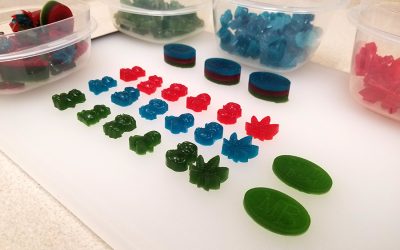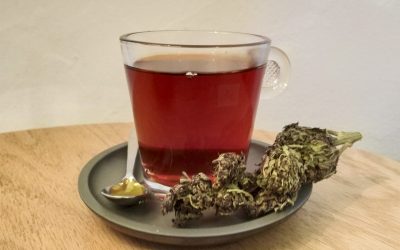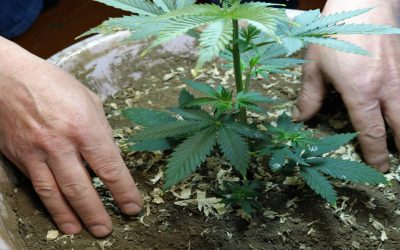Lately, there has been a growing focus on Delta-8 THC, a less familiar cannabinoid present in cannabis. With rising curiosity about alternative cannabinoids, grasping the essence of Delta-8 THC is becoming increasingly important. What is delta 8 thc? Let’s explore and demystify this fascinating cannabis element together.
Deciphering Delta-8: A Basic Overview
Delta-8 THC, also called delta-8 tetrahydrocannabinol, occurs naturally in small quantities in hemp and cannabis plants. Its popularity is growing, especially in states where it’s legal, as an ingredient in items like gummies, vape cartridges, and capsules. Known for inducing a mild, euphoric sensation akin to marijuana, some use it to alleviate conditions like stress, depression, or chronic pain, though scientific backing for its effectiveness is limited.
The majority of commercially available delta-8 is synthesized in labs using cannabidiol (CBD) from hemp plants and various chemicals. This lab-made delta-8 is typically stronger than its natural counterpart. Since FDA regulations don’t cover its production, these products may lack thorough safety and quality testing, posing potential risks due to the use of harmful chemicals in synthesis or their byproducts.
What Are Cannabinoids?
Cannabinoids are chemical substances present in cannabis plants like marijuana and hemp, exceeding a count of 100. While some cannabinoids influence brain activity (psychoactive), others do not.
What is delta 8? The primary cannabinoids include tetrahydrocannabinol (THC) and CBD.
Specific cannabinoids, endorsed by the FDA, have medicinal applications, such as controlling seizures and easing nausea and vomiting triggered by chemotherapy.
How Delta-8 THC Differs from Other Cannabinoids
The Growing Interest in Delta-8
What sparks the increasing curiosity about delta-8? One factor is its resemblance to delta-9 tetrahydrocannabinol (delta-9 THC), the main psychoactive compound in marijuana.
Delta-8 versus Delta-9
Delta-8 and delta-9 are both forms of THC. However, when THC is mentioned, it usually refers to delta-9, which is abundant in marijuana. Although delta-8 doesn’t produce as potent a high as delta-9 THC, it can still affect mood, thinking, emotions, and actions.
In some circles, delta 8 weed is informally called “marijuana lite” or “diet weed.” Additionally, common THC-related side effects like paranoia, anxiety, and drowsiness are typically less intense with delta-8 compared to delta-9.
Comparison: Delta-8, CBD, and Delta-10
CBD originates from both hemp and marijuana plants, which are part of the Cannabis sativa family. Hemp contains notably lower THC levels compared to marijuana. Unlike delta-8, CBD does not produce a psychoactive effect.
Both delta-8 and CBD are accessible in various forms online or in stores. Pure CBD is also available by prescription, FDA-approved for treating epilepsy.
CBD is extensively researched for potential therapeutic uses, such as anxiety, diabetes, multiple sclerosis, Parkinson’s disease, and schizophrenia. Conversely, delta-8’s therapeutic properties are not as well understood.
Delta-10 THC, part of the same chemical group as delta-8 and delta-9, can be artificially produced from hemp in labs. However, its potential health benefits and mechanisms remain largely unexplored.
Some suggest that delta-10 might enhance mood and focus without inducing as intense a high as delta-8. Despite claims of anxiety relief and other health benefits linked with delta-10 products, scientific validation is currently insufficient.
Delta-8 versus HHC
Hexahydrocannabinol (HHC) is a form of THC that undergoes a chemical transformation called hydrogenation. Like delta-8, it originates from hemp and is commonly found in various products, such as gummies and vape liquids.
Both HHC and thc delta 8 interact with brain receptors that regulate functions like sleep and memory. However, their effects can differ noticeably. Users describe HHC as producing sensations similar to delta-9 THC, potentially leading to a stronger high compared to delta-8.
Explore further distinctions between CBD and THC.
How Is Delta-8 Used?
Delta-8 can be consumed in various ways, including:
- In edible forms like brownies or gummies
- In liquid extracts and tinctures, which can be added to food or drinks or placed under the tongue
- Inhaled as vaporized concentrates such as oil or wax
- Smoked as buds, flowers, or hemp treated with delta-8 concentrate
- In capsule form for oral consumption
- Applied to the skin through creams, lotions, or patches
Delta-8 Gummies
Delta-8 gummies are crafted by infusing delta-8 into soft, fruit-flavored candies. Each gummy may contain anywhere from 10 to 50 milligrams of delta-8, depending on the manufacturer. However, due to the absence of FDA oversight, the precise dosage cannot be assured.
For safety reasons, it is recommended to start with a small dose, such as a portion of a gummy, and wait up to 2 hours to gauge the effects before considering additional consumption.
Exercise caution when handling delta-8 gummies and similar edibles around children, who may mistake them for regular treats. Delta-8 poses potential risks to both children and pets.
Delta-8 Cartridges
Vape cartridges, also referred to as carts, are either pre-filled with delta-8 liquid or refillable with vaping liquid. These cartridges connect to a reusable vape battery, which heats them to produce vapor for inhalation. Like delta-8 edibles, these products lack regulation, resulting in varying THC levels among different brands. Delta-8 carts often contain flavorings, additives, and other cannabinoids.
The safety of vaping d8 thc remains largely uncertain. The Drug Enforcement Administration advises against vaping any substance due to potential hazards, particularly for adolescents and young adults with developing brains.
Delta-8 Pens
Delta-8 liquid is also found in disposable vaping devices called cartridges. Moreover, there exist dab pens intended for inhaling dense, highly concentrated cannabinoid substances like wax or shatter.
Impact of Delta-8 THC on the Body
Psychoactive Effects of Delta-8 THC
From a chemical perspective, delta-8 THC bears a close resemblance to delta-9 THC present in marijuana. The key disparity lies in the arrangement of a bond between two carbon atoms. This distinction leads to a weaker interaction between delta-8 and the cannabinoid receptor situated on cells within the body. As a result, the psychoactive effects induced by delta-8 are gentler in comparison to those of delta-9.
Interaction of Delta-8 THC with the Endocannabinoid System
The endocannabinoid system (ECS) encompasses a network of cell signaling and receptors distributed throughout the body. Among these receptors, CB-1 receptors, predominantly concentrated in the brain, hold significant sway over various functions of the central nervous system such as mood regulation, appetite modulation, temperature control, pain perception, and alertness.
CB-1 receptors depend on endocannabinoids, small particles within the body, to become active. Delta-8, possessing a structure akin to endocannabinoids, can stimulate these receptors, essentially assuming control of the endocannabinoid system temporarily, resulting in its psychoactive effects. Delta-9, bearing an even closer resemblance to endocannabinoids, operates in a similar manner.
The exact impact of delta-8 THC on brain chemistry remains uncertain due to its lack of regulation and limited research. However, cannabinoids in general are thought to momentarily increase dopamine levels in the brain, which could contribute to feelings of well-being.
Delta-8 THC: Risks and Adverse Effects
Understanding the impact of delta-8 THC on your health is limited due to a lack of extensive research. While anecdotal reports, often shared on social media, suggest its use alongside prescription medications for depression and substance use, claims of its benefits such as calming nausea, stimulating appetite, pain relief, mental health improvement, and antiemetic properties during cancer treatments remain unsupported by scientific evidence. Despite its availability, delta-8 THC isn’t without risks.
Immediate side effects associated with delta-8 THC may include confusion, anxiety, drowsiness, dizziness, changes in heart rate and blood pressure, numbness, hallucinations, vomiting, tremors, and loss of consciousness. If experiencing any of these symptoms after using delta-8 products, seek medical attention promptly. In cases of emergency or accidental ingestion by children, immediate medical assistance is crucial.
It’s advised to refrain from using delta-8 or any cannabis-derived product during pregnancy or breastfeeding due to potential risks to both maternal and fetal health.
The long-term effects of delta-8 THC are largely unknown due to insufficient research, although insights from studies on delta-9 THC suggest potential cognitive impairments and risks to brain health over prolonged use. Additionally, additives in delta-8 products may pose long-term health risks, as evidenced by findings of harmful substances like lead and mercury in some delta-8 vape oils, underscoring the need for further investigation into its safety profile.
Is Delta-8 THC Legal?
Delta-8 THC has become popular due to its legality in most states, contrasting with the tightly regulated THC. Derived primarily from CBD sourced from legal hemp farming across the U.S., delta-8 occupies a legal gray zone. While hemp’s legal status originates from the 2018 federal farm bill, which removed hemp and its derivatives from controlled substances due to their minimal THC content, delta-8 isn’t explicitly addressed in the legislation. This gap allows advocates and sellers to market delta-8 products legally, often without age restrictions, leading to its rapid growth in the hemp industry.
However, the absence of oversight and laboratory testing raises concerns among chemists and scientists regarding delta-8 product safety. Products labeled as delta-8 may contain impurities, including heightened THC levels. Consequently, some states like New York and Colorado are beginning to impose restrictions or outright bans on delta-8 usage.
Consuming delta-8 THC in states where it’s illegal entails risks. Possession, manufacturing, or distribution of delta-8 in states where it’s prohibited can result in legal consequences. Even in states where delta-8 is legal, driving under its influence can lead to legal penalties.
Where to Find Delta-8?
Delta-8 products are available for purchase without a prescription at various locations including gas stations, convenience stores, as well as cannabis and vape shops. Additionally, many online retailers offer them.
It’s worth noting that there’s no standardized quality control for these products nor their ingredient lists. Furthermore, it’s easy to mistake delta-8 products for CBD, which does not induce a high.
Will It Show Up on THC Tests?
The likelihood of testing positive for THC depends on several factors. Delta-8 is a form of THC, and while drug tests typically screen for delta-9 THC, delta-8 might still register as THC positive. Additionally, individuals can have varied reactions to cannabinoids depending on the type of products they use and the duration of use.
Presently, common urine drug tests do not differentiate between different cannabinoids. Therefore, if you anticipate a drug test, it’s advisable to abstain from using delta-8 products.
Key Points
Delta-8 has gained popularity among individuals seeking a more subdued cannabis experience or exploring potential medicinal benefits. However, there are numerous uncertainties surrounding its safety, effectiveness, and legal status. Before trying delta-8 products, consult your physician and research the applicable laws in your area.










0 Comments